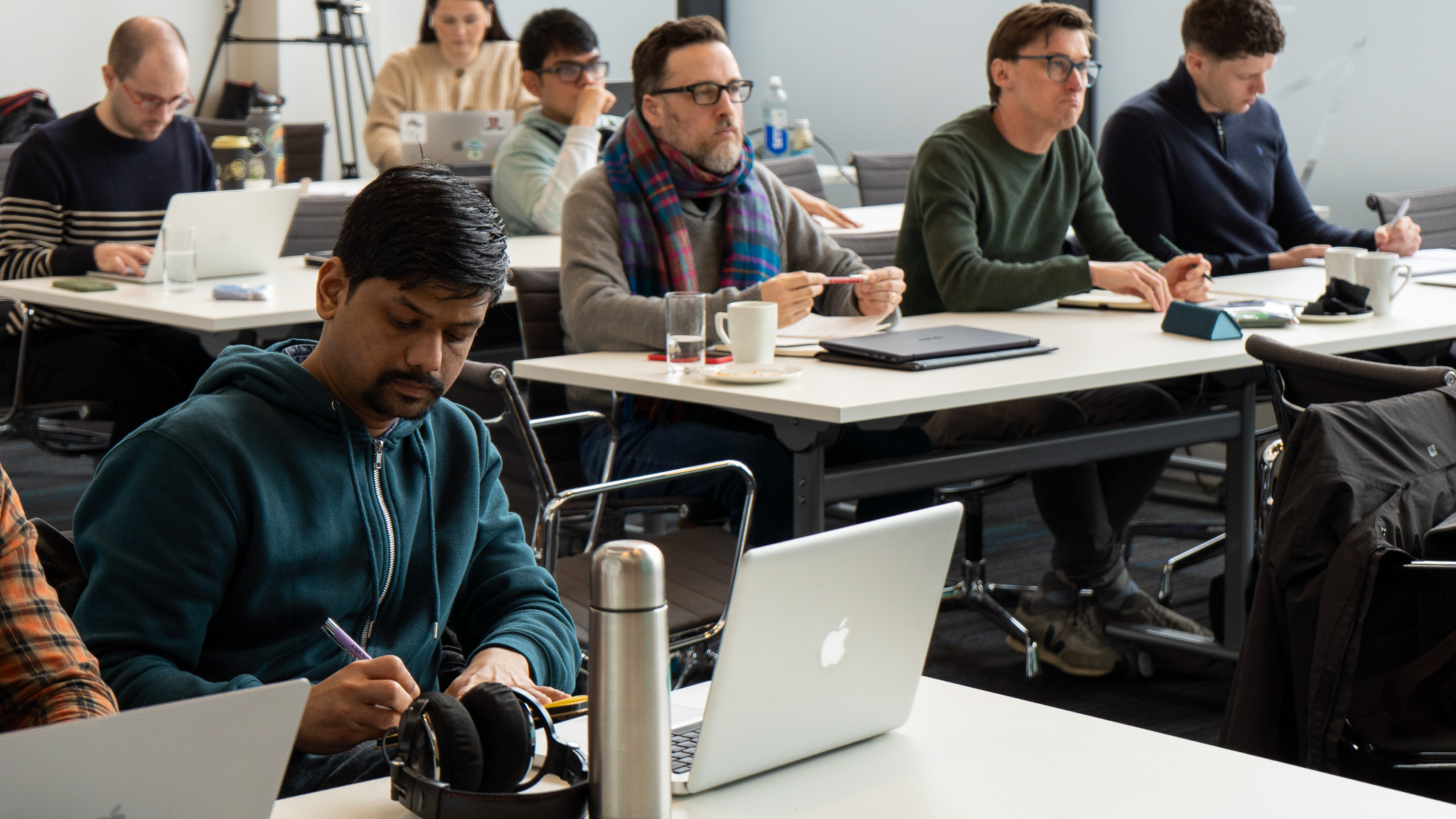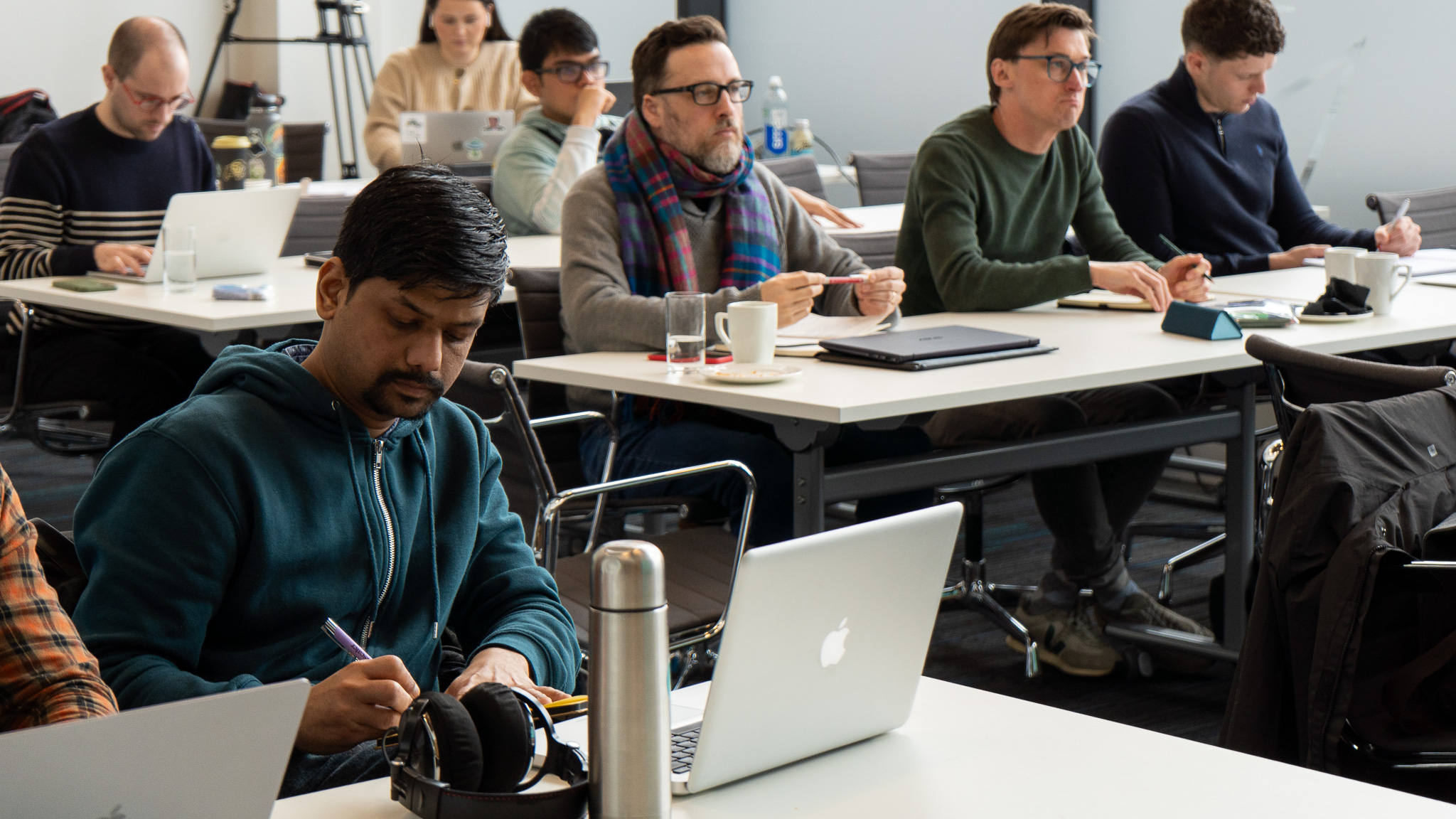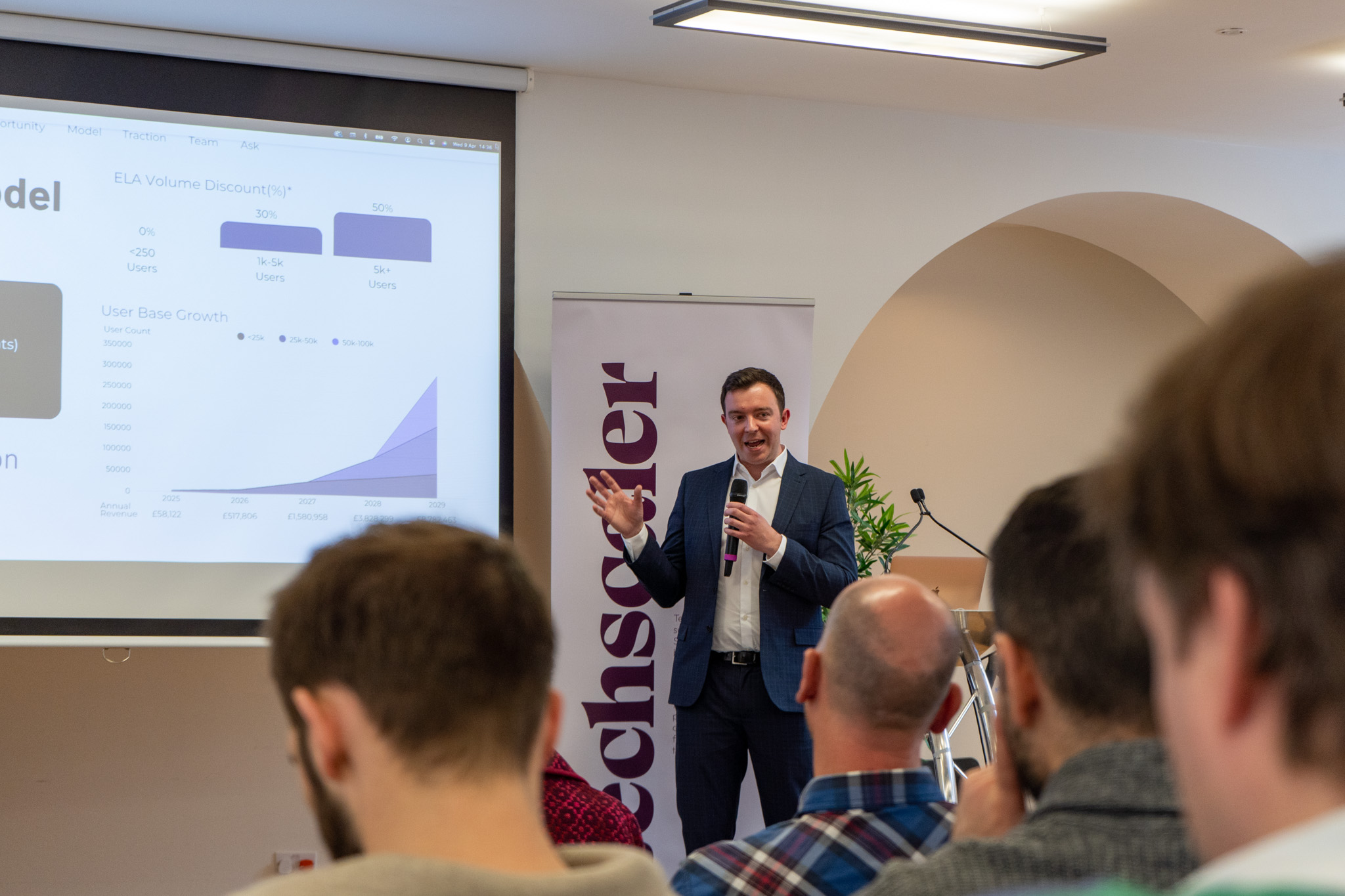As an accountant, my job is to get things right. We don’t like errors and we take pride in the quality of our work. But when I put my entrepreneur hat on, failing isn’t just acceptable, it’s celebrated. I get that failing isn’t the “goal” but failing fast is really just a nice way of saying “learn by doing”.
This revelation struck me during my transformative three weeks in Silicon Valley and San Francisco with Techscaler. The mindset I encountered among tech founders there was fundamentally different: globally focused, collaborative, and refreshingly open. They see opportunities not as scarce resources to be guarded, but as abundant possibilities to be explored. Their attitude? Roll up your sleeves, ship code, see what works, and do more of that.

Founder House party I was invited to - 10 pitches, 9 of which were tech for the sales cycle. SF sees that the market opportunities are huge.
Failure is part of the process
Imagine you're navigating a maze. You've been following a path for months, maybe even years, only to discover it's a dead end. Would you stubbornly press on to save face, or turn around and try a new direction? In the tech world, recognising when something isn't working – whether it's a product, feature, or entire business model – is just as valuable as identifying what does work. It's all about getting closer to your goals and putting as much value as knowing which routes to write off and which routes to explore further.
Active vs passive failure
When you hit a dead-end in the maze of entrepreneurship, you have two choices. You can either push against the hedge until exhaustion sets in, or you can turn around, retrace your steps, and explore new paths. The first approach - passive failure - is where true defeat lies. It's letting circumstances overcome you, knowing something isn't working but choosing inaction.
The second approach - active failure - is really just learning through action. It's about reading the situation, making decisive changes, and what we in the startup world call "pivoting." This kind of failure isn't failure at all; it's strategic adaptation. It's having the courage to acknowledge when something isn't working and the wisdom to change direction before it's too late.
You aren’t shipping discs
We live in a time where you can build technology quickly, ship it cheaply, and take it to market faster than ever before. We are only ever 15 minutes away from a new deployment fix - you aren’t shipping discs with software preloaded with difficult and timely update processes, so take advantage of this. Iterate quickly, pivot when you need to and be open to change when you learn an idea isn’t working.
So why not embrace this opportunity? Allow yourself to try, fail and pivot quickly. Launch that idea, build that MVP, and see if it lands. If it doesn't? Well, you've just succeeded in learning something valuable.

SF’s ad boards are like a walking view of my Pinterest boards for inspiration and mindset. It was awesome.
The lesson
The big lesson I see from failing is around how you frame it in your mind. Shift away from the negativity failing comes with and focus on what you have learned and take into the next stage.
Think about your decision-making processes and how you’d do it differently next time. See if the failing has highlighted skills gaps or areas where your team needs growth. Has the failing challenged a viewpoint you held yourself? The outcome might just be that you have a more rounded perspective for the next feature or venture but keep digging deep and try to be as open as you can be.

Me very much at “home” by the sea at Ocean Beach at the start of the trip. Little did I know at this point how much my mindset was away to be blown over the next 3 weeks….
Ask yourself - why not?
Life is short, and technology moves quickly. So why not throw your ideas out there and see what sticks? Try and shake your pride and perfectionist tendencies. Have the courage to try something new and be ok with the outcome, whatever that may look like.
Give yourself permission to fail. Push boundaries. Challenge the status quo. After all, isn't that what being a tech entrepreneur is all about?
In the end, you'll either succeed in achieving the goal or succeed in learning something invaluable. Either way, you win.
So, are you ready to fail fast and learn faster?

Fan girl moment for me at SaaStr - Dani Grant (right), CEO of Jam.dev - I’ve used Jam for a while now and love it and it’s commitment to solve one problem - easy reporting and squashing of bugs
What’s next
My time in San Francisco was more than just a trip - it was a catalyst for transformation. After parting ways with my previous business partner and establishing Alvah, my new accountancy practice, I'm now at an exciting crossroads. The clarity and ambition I gained from my Silicon Valley experience have expanded my horizons in ways I never expected.
Where I once thought in terms of UK markets, I now see global possibilities. My perspective has shifted from vertical markets to horizontal opportunities, and my understanding of the investment landscape has completely changed. What sets me apart is the unique combination of being both a finance expert and a self-taught developer - a bridge between two worlds that often struggle to connect.
This blend of financial expertise and technical skills has already sparked action. I've built a new app that I'm preparing to launch on Product Hunt - true to the Silicon Valley spirit of throwing ideas out there to see what sticks. This was accelerated by a late night hackathon with the cohort who helped me move my idea along, and get swept up in the excitement of it all.

Late night hackathon in the office with some of the cohort - powered by Reese’s Pieces and the excitement of building tech fast and challenging what we all thought was “minimal”. Spot the Project Manager cat…
While I'm still figuring out exactly what's next, I've never been more determined, excited, or ambitious about building tech products that solve real problems and make meaningful impact.
Moving forward, I'm embracing these core principles from my Silicon Valley experience:
- Done is better than perfect
- Share knowledge openly
- Build and nurture a supportive network - what you give will come back to you
- Think 10X, not 2X
- Stay visible—you never know who might help you along the way







-52.jpg)
.jpg)







-2.jpg)














.png)

.png)







.png)
.png)
.png)

.png)

.png)
.png)



